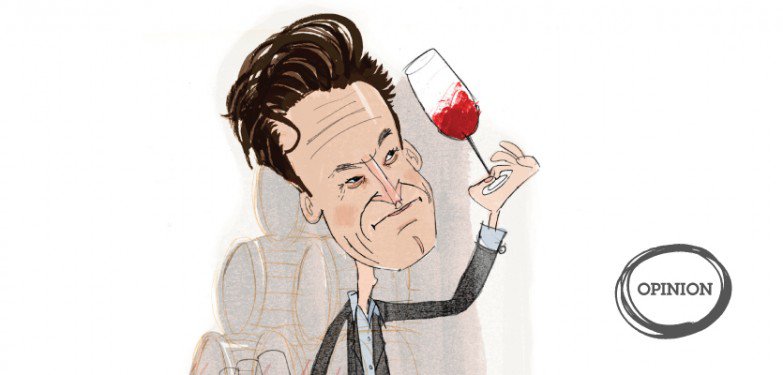One side of wine I have never really got is the endless paraphernalia to help you enjoy it. Funnels, extravagantly shaped decanters and pumps do nothing for me.
I am aware there is a market for this stuff. The latest gadget is a decanting device that bubbles purified oxygen through your wine and ‘reinvents the decanting experience’. It is called the iSommelier, which is confusing as it implies that it somehow takes over from a physical sommelier and decants the wine for you.
‘Sommelier’ is frequently attached to wine accessories; there are sommelier ranges in almost everything. The word is meant to bring old-school gravitas. These associations play to the traditional bow-tied image of the role. But we need to move on; the job has already and needs to continue to evolve. Despite having one of the most exciting restaurant scenes in the world, the sommelier in the UK doesn’t enjoy the same status as in other parts of the globe.
In Australia last year I noticed somms at the forefront of a restaurant’s promotion. They share the front of the website with the chef. In the US – especially New York – sommeliers are now wine directors, a term that used to grate when I heard it, but which I have now come round to accepting. ‘Director’ carries weight as a title and accurately sums up what a top somm does. They don’t just recommend and serve wine, they manage up to 50% of the business. These people have the same status (and pay) as the top front of house managers or chefs.
With so many similarities between the NYC and London dining scene, it’s a mystery the industry hasn’t created more of these roles here. That it hasn’t is perhaps why so much talent leaves.
The changing nature of how we dine makes it more important that sommeliers are afforded this status. I ate two meals in restaurants last month where the bill was £100 a head. We didn’t drink excessively or go crazy on bottle price; both places were casual and had excellent lists. And neither venue had a formal sommelier that I saw. It wasn’t long ago this type of spend would have guaranteed a visit by one to my table. Instead, each establishment relied on external advice and the bounty supplied by London’s small merchants to create great offers.
Yet my experience in both would have been better had I had someone to discuss my wine order with. Interaction is crucial in this relaxed service model. Character, the ability to tell a story and social skills are as important as knowledge, since there is no formal service structure to hide behind.
It is essential the modern sommelier adapts and finds ways to make themselves indispensable in our evolving industry, so we see less wine gadgets and more wine directors in the press.

